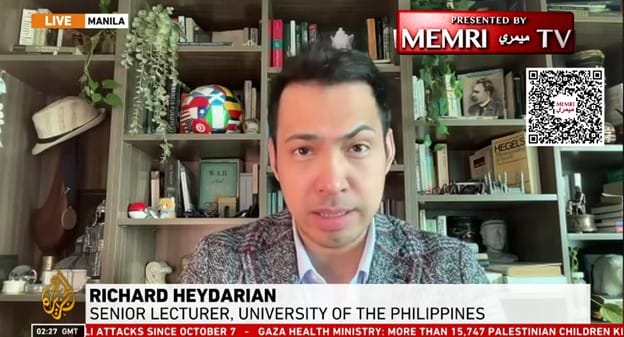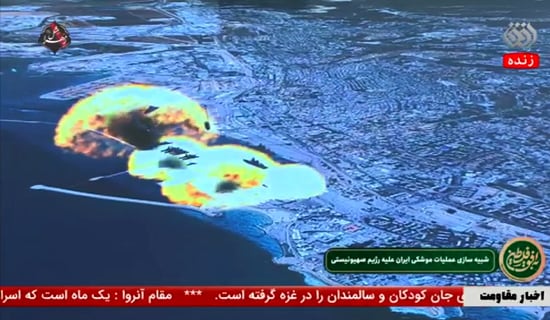
Richard Heydarian, a policy adviser and senior lecturer of international affairs at the University of the Philippines discussed a recent incident in which Chinese coast guards boarded Philippine vessels in the South China Sea armed with machetes, attacked the crew, caused destruction, and confiscated equipment. In a June 20, 2024 interview with Al-Jazeera Network (Qatar), he said that China has been deploying "very aggressive tactics" that could be fatal. He said that gradually, the so-called Chinese "gray zone strategy" is moving towards something potentially much more explosive. Heydarian added that if there will be casualties, America could become directly involved. He stated that the Philippines is feeling isolated and the countries supporting it against China are not from the region.

Richard Heydarian: "So for the past year we have seen close to half a dozen incidents including collisions between Philippine and Chinese vessels, and at the same time also, China deploying very aggressive tactics like water cannons that could be potentially fatal, so the Philippines has adjusted its tactics, including using boats that could withstand water cannon deployment by China. But this time China did something quite different. It deployed essentially its troops, its maritime forces aboard Philippine vessels and forced the disarmament of them.
"So that could have triggered something very, very dangerous, similar to what happened in the Himalayas between India and China when troops from both sides engage in hand-to-hand combat. Gladly, the Philippine side was professional enough to stand down and not to fight back, but this could have gone wrong in many ways. So, we're gradually seeing Chinas so called 'gray zone' strategy moving towards something much, much, much potentially explosive, and this is big because the Philippines is not alone in dealing with China. If there were to be casualties in the future, the Americans have made it clear that they could get directly involved.
[...]
"To be absolutely honest, this situation does not look good. There doesn't seem to be any sense of urgency, in fact, what's happening right now, is in the Philippines, there are many questioning whether ASEAN is helpful at all, in fact many would argue in the Philippines that ASEAN has been enabling China by essentially not only turning a blind eye, but we see some members of ASEAN in different forms, essentially blaming the Philippines for the escalation in tensions, essentially engaging in what we call 'strategic gaslighting'.
[...]
"Philippines is feeling isolated and the countries that are supporting the Philippines are from outside the region: Americans, or Australians, or Europeans, and also the Japanese."

















